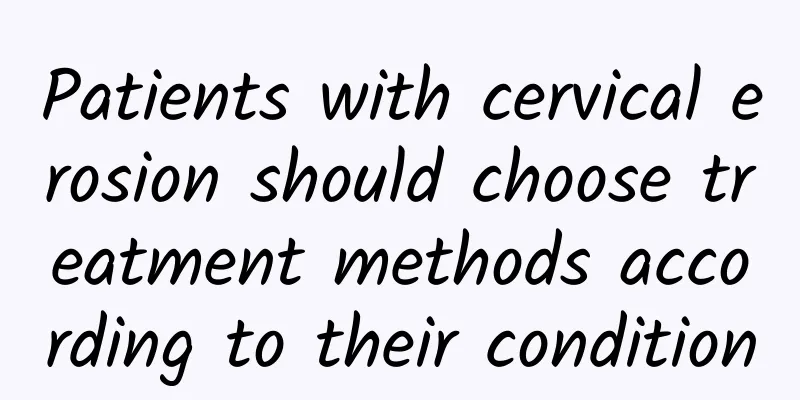Is pregnancy with uterine fibroids life-threatening?

|
Pregnancy with uterine fibroids may lead to certain risks, but not all patients will have serious consequences. The specific situation depends on the location and size of the fibroids and their growth after pregnancy. Common risks include miscarriage, premature birth, fetal growth retardation, etc., but in most cases, a smooth delivery can be achieved with proper management. If necessary, intervention can be combined with medication, surgery and lifestyle adjustments. 1The impact of uterine fibroids on pregnancy The key to the impact of fibroids on pregnancy lies in their specific location and size. If the fibroids are located in the uterine cavity, such as submucosal fibroids, they may interfere with embryo implantation or cause miscarriage. Larger or multiple fibroids may compress the uterine cavity, change the shape of the uterus, and affect fetal development. During pregnancy, due to increased hormone levels, fibroids may grow rapidly, causing insufficient blood supply, thereby increasing the risk of premature birth. 2 Life-threatening and high-risk situations Serious risks mainly manifest in special circumstances, such as placental abruption caused by fibroids, heavy bleeding, fetal distress or uterine rupture during delivery. Although these conditions are rare, once they occur, they may affect the life safety of mother and baby. 3. Diagnosis and treatment recommendations Prenatal check-up: Ultrasound screening is required to evaluate the size and location of fibroids during pregnancy planning or early pregnancy. If the fibroids are prone to complications, a specific treatment plan should be agreed upon with the doctor. Drug intervention: For patients with fibroids before pregnancy planning, doctors can prescribe drugs, such as gonadotropin-releasing hormone agonist GnRH-a, to reduce the size of fibroids. Use of drugs during pregnancy should be done with caution and is generally not recommended. Surgical options: For larger or symptomatic fibroids, surgical resection before pregnancy can be considered. Minimally invasive techniques such as laparoscopy or hysteroscopy are more suitable for patients who are planning to have children. If the symptoms of fibroids are severe after pregnancy, emergency surgery will only be considered if medically necessary. 4. Lifestyle Adjustments Avoid excessive fatigue and psychological stress. Bad living habits such as staying up late or irregular diet may further worsen the condition. It is recommended to consume foods rich in folic acid and vitamin E to help fetal development, such as dark green leafy vegetables, nuts, etc. Although pregnancy with uterine fibroids has certain risks, most patients can safely conceive and give birth through scientific evaluation and close management. If you suspect that you may have fibroids, you should seek medical attention as soon as possible and actively cooperate with the doctor for pre-pregnancy or pregnancy management to minimize the risks and ensure the safety of both mother and baby. |
<<: How many days can you recover to normal after cervical pregnancy surgery?
>>: What to do if the pain of Bartholin's glands gets worse
Recommend
What is the TCM dialectical treatment method for chronic cervicitis in women? Three major Chinese medicine prescriptions for treating chronic cervicitis in women
Chronic cervicitis is a very common gynecological...
Nursing measures for uterine effusion
The appearance of uterine effusion troubles women...
Experts: How often is a period considered irregular?
For women, the menstrual cycle is usually one mon...
Can cervical precancerous lesions be cured with minimally invasive surgery?
Can early cervical precancerous lesions be cured?...
Several common precautions for treating vulvar leukoplakia
With the increasing number of patients with vulva...
Can hidden abortion be clean? What should I do if hidden abortion has occurred?
Hidden miscarriage (disappearance of the fetus) r...
What is pregnancy menstruation
The term "pregnancy period" may sound a...
Do you know about hysteroscopic abortion?
As more and more people undergo abortion , people...
Why is my menstruation always irregular? There are 5 causes of irregular menstruation
With the development of society, the pace of life...
Worried about weight gain and indigestion after eating rice dumplings during Dragon Boat Festival! Nutritionist: 3+4 tips for Dragon Boat Festival, eat zongzi healthily without gaining weight
The Dragon Boat Festival is coming soon. We are c...
What causes recurrence of Bartholinitis?
Many women are often troubled by gynecological di...
Is it life-threatening to have an abortion for a scarred uterus? Will I get pregnant?
There are certain risks in performing abortion on...
Which hospital is more professional in treating dysmenorrhea?
Which hospital is more professional in treating d...
How many days after a miscarriage is it normal to be clean?
Under normal circumstances, it takes 7 to 14 days...
Here are some ways to relieve dysmenorrhea symptoms
Dysmenorrhea brings great trouble to the daily li...









